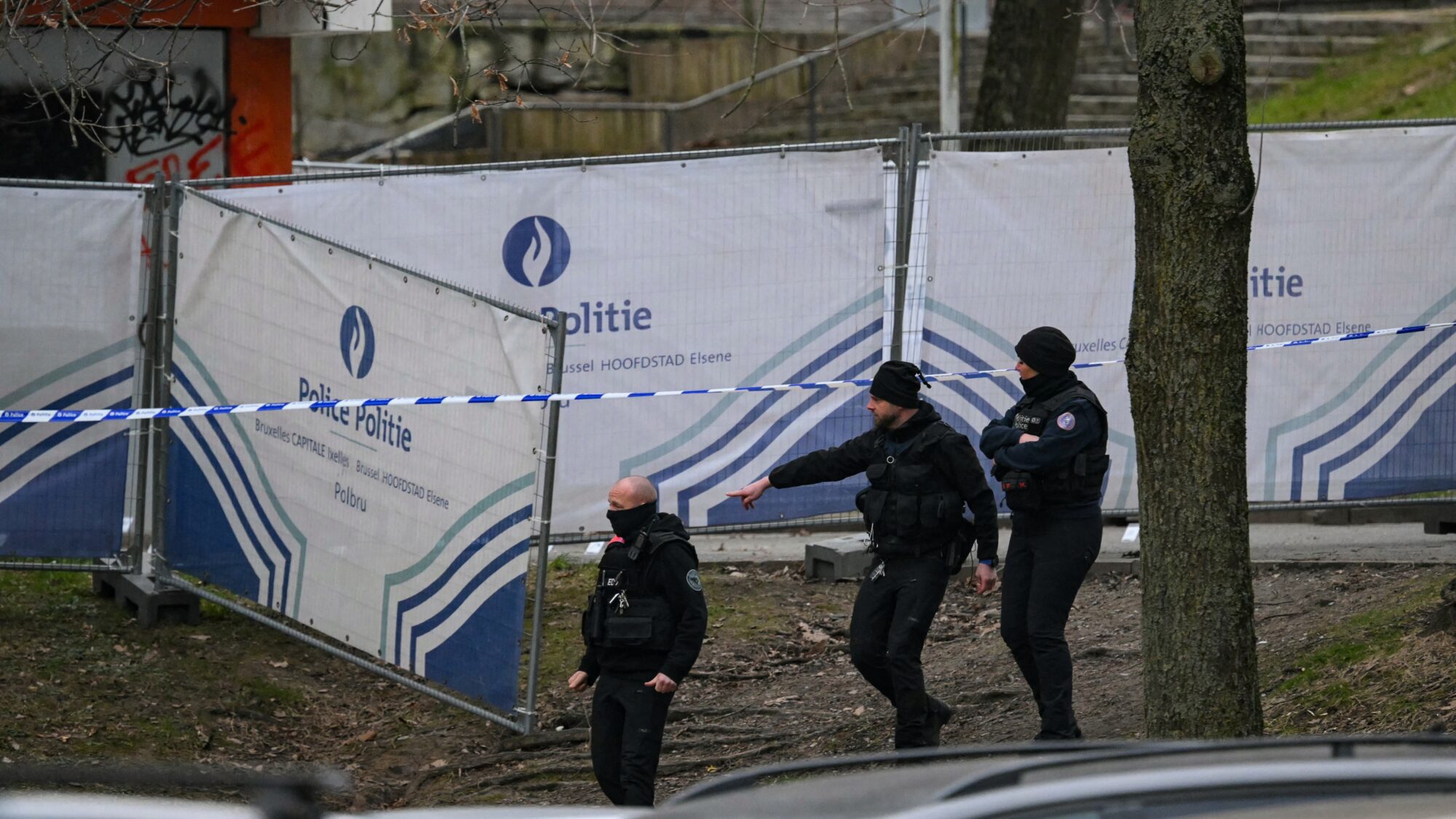
Police officers walk at an investigation area in the Peterbos neighbourhood of Anderlecht, Brussels where a man was killed the previous night in a shooting linked to drug trafficking on February 7, 2025.
Nicolas Tucat / AFP
Belgian lawmaker demands that the military steps in to help policing efforts following a recent state of gang violence, particularly in Brussels, have received heavy pushback from service member representatives.
Military union official Yves Huwart responded to calls for personnel to be deployed more regularly for static surveillance missions—including at embassies and nuclear power plans—so that police can spend more time deterring bloodshed on the streets by insisting “that’s not our job:”
We need to focus on preparing for geopolitical challenges, not police tasks.
Others suggested that the government was looking to the military for help primarily for financial reasons, with Belgian daily Le Soir quoting figures as saying that “unlike the police, military personnel deployed for 24 hours are only paid for 12 hours.”
Disgruntled members of these unions are also set to join protests against the government’s pensions plans this week, which one representative described as “lose-lose” for service members, likely influencing their response to call-ups.
Chris Huybrechts, president of the Free Union of Public Service (SLFP) Defence, also stressed that soldiers lack certain police powers, rendering the demands of interior minister Bernard Quintin unworkable.
Soldiers can be deployed if the threat level determined by the nationalby national CUTA intelligence unit increases. But this is currently not the case, despite four shootings taking place in Brussels in just 72 hours last week in what appears to have been a showdown between drug cartels.
Elsewhere across Europe over the weekend, three men were stabbed in what have been described as random attacks on Sunday, and multiple people were left injured following one stabbing and one shooting incident in different locations across the Netherlands.
